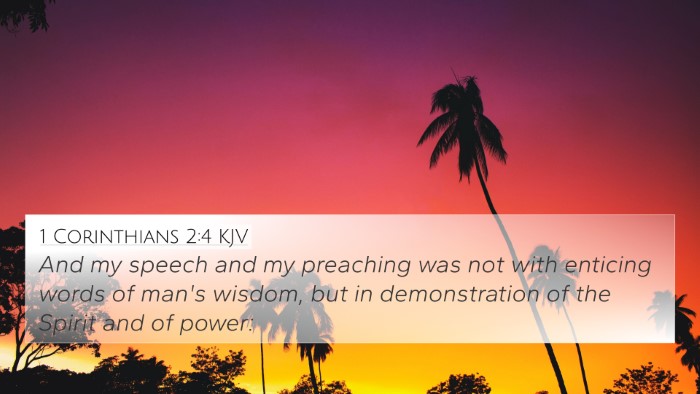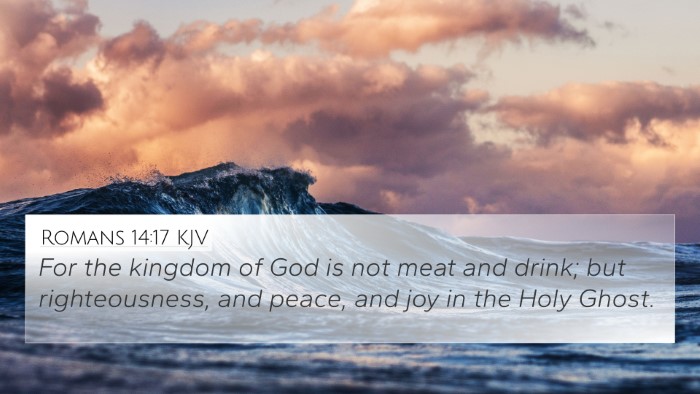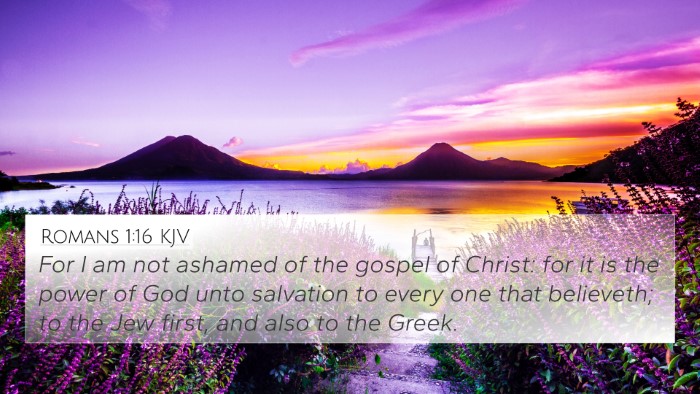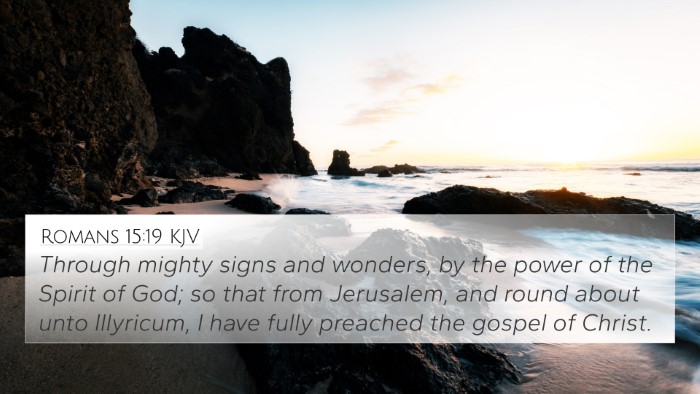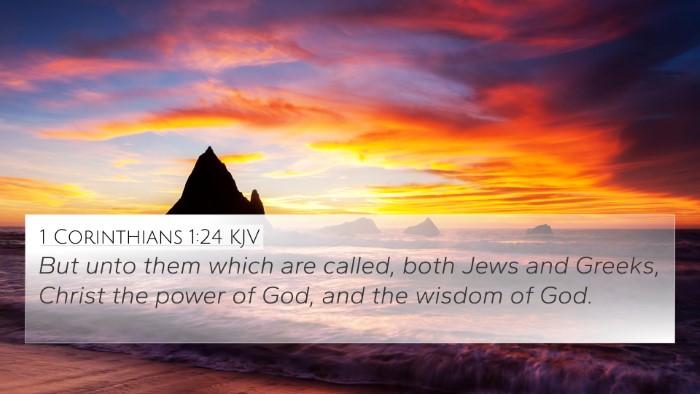Understanding 1 Corinthians 4:20
Verse: "For the kingdom of God does not consist in talk but in power." - 1 Corinthians 4:20 (ESV)
Meaning and Exegesis
The Apostle Paul, in this passage, emphasizes the contrast between mere words and the transformative power of God's kingdom. He asserts that true evidence of a believer's faith and the realities of the gospel are not merely found in rhetoric but in the authentic power of God at work in the lives of individuals and the church as a whole. This statement is part of Paul's broader discourse on authority and the role of apostleship, where he consistently defended his ministry against criticisms.
Insights from Commentators
-
Matthew Henry:
Henry highlights the notion that while eloquence and persuasive speech have their place, they must always give way to the genuine workings of divine power. He posits that the kingdom of God is demonstrated through actions and results that stem from faith, rather than mere verbal claims.
-
Albert Barnes:
Barnes emphasizes that the power of God's kingdom is manifested in the lives transformed by the gospel, contrasting the weakness of human speech with the strength found in divine intervention. He believes that this power is demonstrated through miracles, changed lives, and the working of the Holy Spirit.
-
Adam Clarke:
Clarke notes that Paul was addressing a congregation that valued human wisdom and rhetoric. He seeks to redirect their focus from the superficiality of impressive speech to the profound impact of God's might and effectiveness in the believer's life and community.
Cross References
This verse can be linked with several other scriptures that underline the theme of God's power over human ability and the importance of authentic faith. Below are key cross-references:
- Romans 14:17 - "For the kingdom of God is not a matter of eating and drinking but of righteousness and peace and joy in the Holy Spirit."
- 2 Corinthians 4:7 - "But we have this treasure in jars of clay, to show that the surpassing power belongs to God and not to us."
- 1 Thessalonians 1:5 - "Because our gospel came to you not only in word, but also in power and in the Holy Spirit and with full conviction."
- Matthew 7:21 - "Not everyone who says to me, 'Lord, Lord,' will enter the kingdom of heaven, but the one who does the will of my Father who is in heaven."
- Philippians 3:3 - "For we are the circumcision, who worship by the Spirit of God and glory in Christ Jesus and put no confidence in the flesh."
- Colossians 1:13 - "He has delivered us from the domain of darkness and transferred us to the kingdom of his beloved Son."
- John 1:12-13 - "But to all who did receive him, who believed in his name, he gave the right to become children of God, who were born, not of blood nor of the will of the flesh nor of the will of man, but of God."
Thematic Connections
This verse is pivotal in understanding the theme of Paul’s apostolic authority, the concept of the kingdom of God, and the distinction between empty religion and true faith that produces tangible results. The following themes encapsulate these ideas:
- Distinction between Words and Actions: The emphasis is on the authentic expression of faith through actions rather than mere verbal affirmation.
- Power of the Holy Spirit: Paul's view of divine power contrasts human abilities, highlighting that spiritual transformation is accomplished through the Holy Spirit.
- Genuine Faith: This passage supports the view that real faith is evidenced by action and transformation in the believer's life.
- The Nature of the Kingdom: The kingdom is characterized by its power, which works in the world to transform individuals and communities.
- Leadership and Responsibility: Paul asserts the responsibility of leaders to demonstrate God's power rather than relying solely on persuasive speech.
Practical Applications
Understanding this verse can transform how believers approach their faith and witness:
- Shift Focus: Encourage individuals to move from relying on eloquent arguments to demonstrating their faith through love and action.
- Empowerment by the Holy Spirit: Believers should seek the empowerment of the Holy Spirit to live out their faith dynamically.
- Authenticity in Ministry: Ministries and churches must strive for authenticity rather than superficial appearances, focusing on tangible results of changed lives.
- Community Impact: The power of God’s kingdom should reflect in the community, prompting believers to engage actively in service and outreach.
- Spiritual Growth: Encourage a discipleship path rooted in experiencing God’s power, leading to personal transformation and impact on others.
Conclusion
1 Corinthians 4:20 serves as a profound reminder that the essence of the Christian faith is not merely about what we say, but how we live, reflecting the kingdom of God through tangible displays of its power. The interplay of words and actions within the context of faith is crucial for the believer, and understanding this verse aids in comprehensive Bible verse analysis and cross-referencing with related passages. Such insights are beneficial for sermon preparation, personal study, and the overall grasp of the interconnectedness of Biblical themes.



